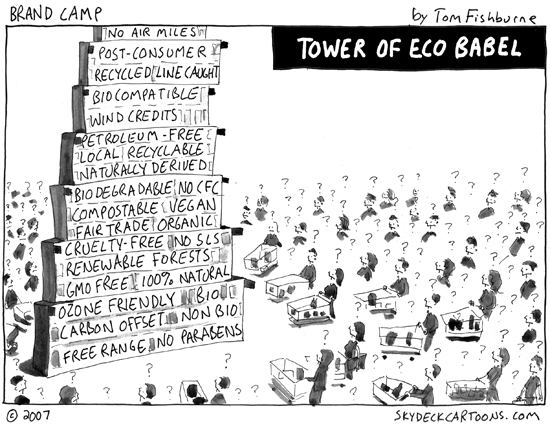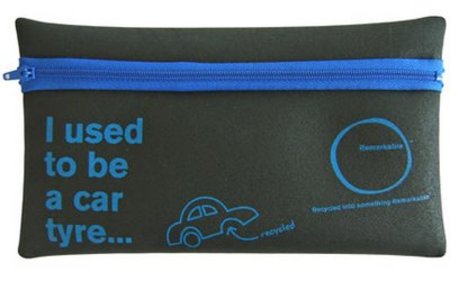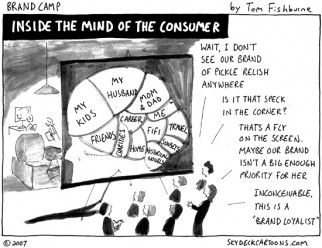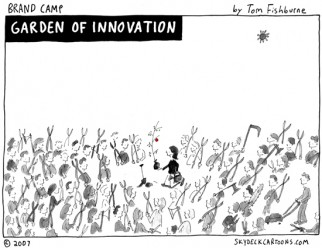I find many eco labels incredibly confusing (and I’m probably a lot closer to them than the average consumer). Because there are few regulatory standards, there seem to be a lot of “eco labels of the week”. Even the standard ones are confusing, as you can see when the Vegan Society recently withdrew its certification from Ecover, because they consider “no animal testing” to include a variety of 0.2mm long water flea. Of course, it’s all quite complex and there are no easy answers. But I think the resulting “claim race” is creating a maddeningly confusing grocery aisle.
Also, so many of the claims are awfully technical. Many consumers don’t even know what a carbon footprint is, let alone “100% post-consumer recycled content”. Or just how “biodegradable” is distinct from “compostable”.
It got me thinking that in our rush to communicate eco-friendly benefits, we’re building our own eco tower of babel. Thanks to wikipedia, I learned the root of Babel means to “confuse or confound” in Hebrew.
Ultimately, it’s up to us as marketers to wade through it all and do the work for consumers. Only pick the relevant (and honest) bits, and then explain it to consumers in a human way. As my old manager, Helen Kurtz, used to say to our R&D scientists, “explain it to me like you’re explaining it to my grandmother”.
I love how Remarkable approaches this. Here’s one of their pencil cases:




Leave a Reply